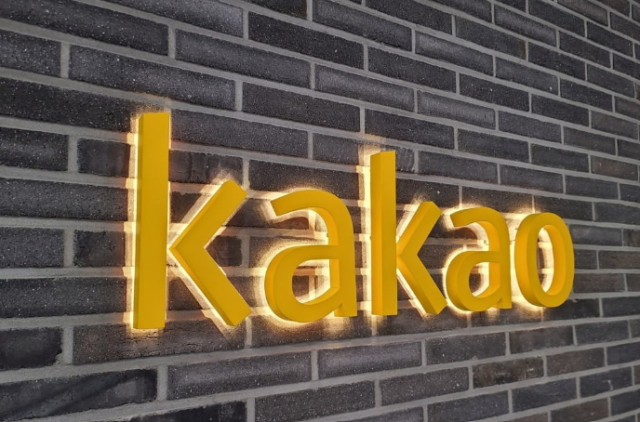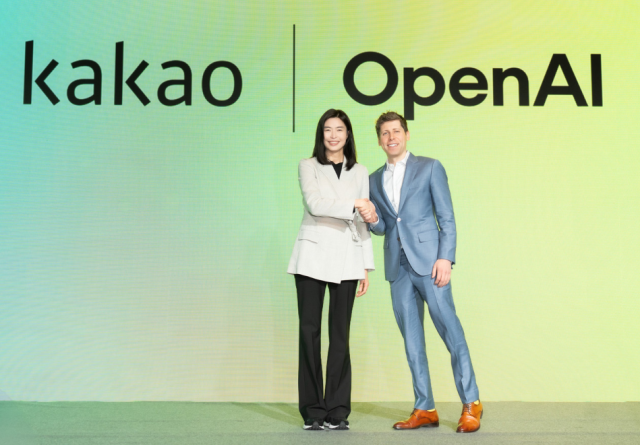
Editor's Note: This article is the 22nd installment in our series on Asia's top 100 companies, exploring the strategies, challenges, and innovations driving the region's most influential corporations.
SEOUL, June 12 (AJP) - Kakao Corporation, once a scrappy start-up with a single messaging app, has grown into one of South Korea’s most powerful tech conglomerates — a digital behemoth whose services permeate nearly every aspect of daily life for millions of Koreans.
Founded in 2006 by Kim Beom-su, also known as Brian Kim, the company built its vast empire on the back of KakaoTalk, the free messaging service that launched in 2010 just as smartphones became ubiquitous in South Korea.
Today, the app boasts a 93 percent penetration rate among the country’s 52 million people, with some 48 million monthly active users.
The company’s rapid ascent mirrored the nation’s mobile revolution. Within six months of launch, KakaoTalk surpassed one million users; by 2015, it controlled more than 90 percent of South Korea’s messaging market. That dominance laid the groundwork for a strategy of aggressive expansion into new sectors — one that transformed Kakao from a chat app into a sprawling digital ecosystem.
Kakao’s growth accelerated in 2014 with its merger with the web portal Daum, a deal valued at 1.06 trillion won (about $960 million at the time), bringing media and content into its fold.
In the decade since, the company has ballooned in size, growing from 26 affiliated firms in 2014 to 124 as of 2024. According to the Fair Trade Commission, Kakao’s combined assets now total 86 trillion won.
Its operations span financial services via KakaoPay and KakaoBank, transportation through Kakao T — which holds a commanding 90 percent share of the country’s ride-hailing market — entertainment via Kakao Entertainment, online gaming through Kakao Games, and music streaming through Melon.
In the first quarter of 2025, the company reported revenue of 1.86 trillion won and an operating profit of 105.4 billion won, reflecting the strength of its diversified business model and the seamless integration of services across its ecosystem.

But Kakao’s runaway growth has not been without controversy.
The company has come under increasing scrutiny from regulators and the public over allegations of monopolistic behavior, particularly in sectors traditionally served by small and midsize businesses. Former President Yoon Suk Yeol in 2023 labeled Kakao’s ride-hailing operation “monopolistic,” a statement that signaled intensifying government pressure.
The scrutiny deepened in 2024 when founder Kim was arrested and indicted on charges of stock market manipulation related to Kakao’s high-profile acquisition of SM Entertainment, a leading K-pop agency.
In March, Kim stepped down from his operational roles, citing a diagnosis of bladder cancer and the ongoing legal proceedings. The company is now led by CEO Shina Chung, who has vowed to usher in a new era of “governance innovation” and corporate restructuring.
Kakao is also grappling with internal tensions.
In June, its labor union staged the first strike in company history, citing grievances over compensation and working conditions. The labor unrest stands in stark contrast to the company’s robust financials, and suggests deeper dissatisfaction within its ranks.
Globally, Kakao has seen more modest success. Its international efforts have focused primarily on Asia, with its webtoon platform Piccoma gaining popularity in Japan, where it has maintained the top spot in the lucrative digital manga market.
The company has also expanded content offerings in Taiwan and Southeast Asia, while KakaoPay now operates in about 50 countries across Asia, Europe, and the Americas.

Kakao’s future ambitions are increasingly tied to artificial intelligence.
In 2025, the company announced a strategic alliance with OpenAI, integrating ChatGPT into its services. Among its newest offerings is Kanana, a “hyper-personalized” AI companion service now in beta testing.
During its recent earnings call, Kakao previewed upcoming AI integrations, including “AI Mate Shopping” and “AI Mate Local,” which will tie into its e-commerce and mapping platforms. While the company teased further collaborations with OpenAI, it said it was “too early" to discuss business models.
Kakao now faces a delicate balancing act: maintaining its dominant position at home while pursuing growth abroad, all under the watchful eye of regulators and amid internal and legal upheaval.
How it navigates this moment — particularly its transition beyond Kim’s leadership, resolution of labor disputes, and execution of its AI vision — may well determine whether it remains South Korea’s leading tech champion or becomes a cautionary tale of unchecked expansion.


Copyright ⓒ Aju Press All rights reserved.

